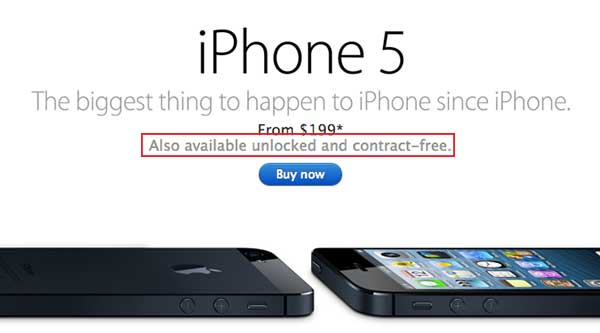U.S. President Barack Obama's administration made a statement on Monday publicly supporting the ability of users to legally unlock their cell phones and other devices for use with the carrier of their choosing.
The statement was made in response to a citizen petition filed with the White House, entitled "Make Unlocking Cell Phones Legal." That petition was created in response to a Library of Congress ruling made in late 2012 that determined cell phone unlocking would be removed as a legal exemption from the Digital Millennium Copyright Act.
Writing on behalf of the administration, R. David Edelman, senior advisor to the Chief Technology Officer for Internet Policy, said the White House agrees with the more than 100,000 people who signed the online petition.
"Consumers should be able to unlock their cell phones without risking criminal or other penalties," he said. "In fact, we believe the same principle should also apply to tablets, which are increasingly similar to smartphones. And if you have paid for your mobile device, and aren't bound by a service agreement or other obligation, you should be able to use it on another network."
Calling those rights "common sense," Edelman said ensuring the ability of consumers to unlock their devices is "crucial for protecting consumer choice.""Consumers should be able to unlock their cell phones without risking criminal or other penalties. In fact, we believe the same principle should also apply to tablets." — White House Senior Advisor R. David Edelman.
While the statement is a win for those who believes consumers should be able to unlock their phones and tablets once their service contact is completed, there's nothing currently on the table legislatively to protect those rights. But the Obama administration said it will support a range of approaches to the issue, including legislative fixes, or relying on the Federal Communications Commission to step in.
"We look forward to continuing to work with Congress, the wireless and mobile phone industries, and most importantly you — the everyday consumers who stand to benefit from this greater flexibility — to ensure our laws keep pace with changing technology, protect the economic competitiveness that has led to such innovation in this space, and offer consumers the flexibility and freedoms they deserve," said Edelman.
As of Jan. 26, 2013, unauthorized unlocking of all newly purchased phones became illegal. That prompted the creation of the petition by Sina Khanifar, who spoke with AppleInsider last month.
Khanifar frequently travels from Europe to San Francisco, Calif., and said he has found cell phone locking to be not only a nuisance, but also a financial burden.
"Anyone who travels internationally, and most people do at some point, you won't be able to take your cell phone with you," he said. "Trying to use it with the existing roaming fees that carriers charge is almost impossible because they're so exorbitant."
 Neil Hughes
Neil Hughes







-m.jpg)






 Brian Patterson
Brian Patterson
 Charles Martin
Charles Martin


 Malcolm Owen
Malcolm Owen
 William Gallagher
William Gallagher
 Christine McKee
Christine McKee
 Marko Zivkovic
Marko Zivkovic









33 Comments
"... And if you have paid for your mobile device, and aren't bound by a service agreement or other obligation, you should be able to use it on another network."
In this case AT&T will help you unlock it and it is not illegal. They were very helpful when I needed my old iPhone unlocked to use when traveling abroad.
In this case AT&T will help you unlock it and it is not illegal.
It's illegal to do it yourself.
Khanifar frequently travels from Europe to San Francisco, Calif., and said he has found cell phone locking to be not only a nuisance, but also a financial burden.
"Anyone who travels internationally, and most people do at some point, you won't be able to take your cell phone with you," he said. "Trying to use it with the existing roaming fees that carriers charge is almost impossible because they're so exorbitant."
I tend to disagree with this statement because I don't think most people travel abroad very often or at all. Furthermore, when I travel abroad I carry two phones. One, I carry my regular iPhone 5 which is locked to AT&T because I still want to know when my stateside associates call me. I don't usually answer the phone but instead call them back using my Skype minutes. The other phone I carry is my unlocked iPhone 4 which has a local pay as you go sim so locals can call without dialing an international number. If I were to just have a local pay as you go phone I would not know when someone tried to reach me on my USA phone number.
I'm not sure how Verizon phones work but as far as AT&T, if you want to have both your home and international numbers on a single device you are going to need a Nokia or some Android phone because iPhones don't offer dual sim models.
Apple argued that modifying their OS to jailbreak and unlock it, was a copyright violation.
In this case AT&T will help you unlock it and it is not illegal. They were very helpful when I needed my old iPhone unlocked to use when traveling abroad.
They will only unlock it if your phone is out of contract, period. If you have even a single month left on your commitment, forget it. Trip or no trip, they will not unlock it unless you pay the ETF. AT&T is a bunch of crooks.